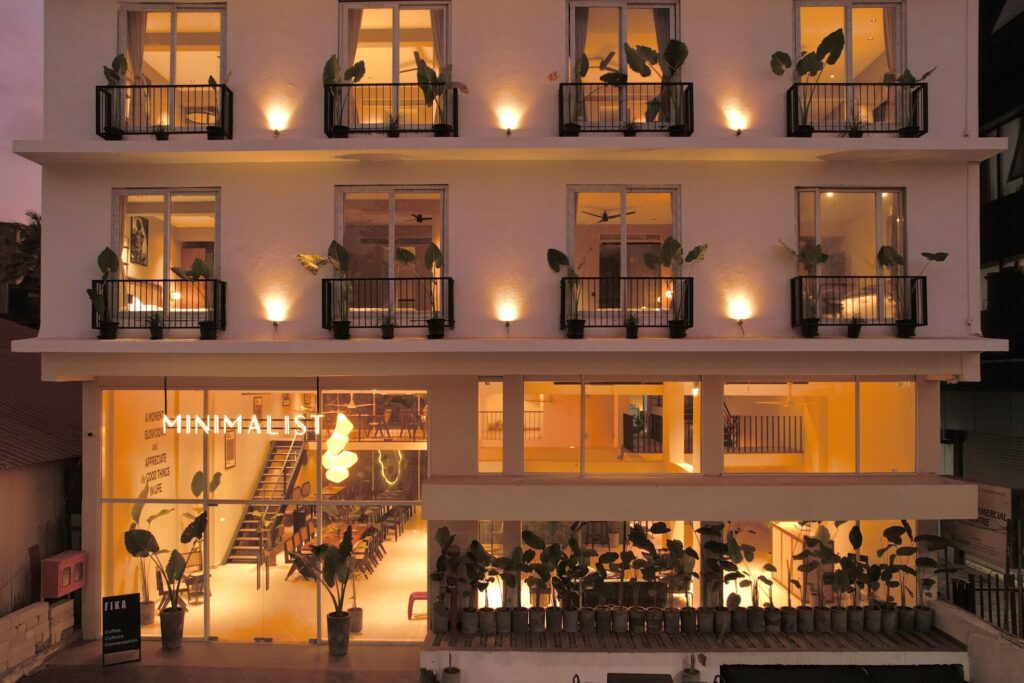
Skift Take
The hospitality scene in India is changing, and it’s giving rise to brands like Minimalist Hotels that cater to travelers who look for places that strike a balance between quality and experience. Lavish amenities might not be a priority, but they’re happy to splurge on things like specialty coffee or other premium touches.
Minimalism, for Gautam Munjal, the founder of Minimalist Hotels, is more than a buzzword — it’s about offering a high-quality experience without excess, appealing to travelers who are increasingly eco-conscious. In the latest episode of the Skift India Travel Podcast, catch Munjal in conversation with Asia Editor Peden Doma Bhutia as he talks about integrating hybrid spaces that cater to both work and leisure needs, while aiming to tap into the growing demand for flexibility among young urban travelers. He also sees food and beverage as an essential part of the guest experience, introducing unique concepts like craft cocktail bars and cozy cafés.
Key Points
Minimalism as a Core Ethos: Minimalist Hotels embraces a design philosophy that focuses on creating serene, uncluttered spaces, using clean lines, neutral palettes, and functional furnishings to promote a sense of calm and simplicity.
Strategic Location Choices: Varanasi emerged as a key location for the brand due to its consistent appeal to international travelers and lack of unique accommodation options, making it a natural fit for the brand’s footprint.
Redefining Affordable Luxury: Munjal describes their approach as “lo-fi luxury,” offering authenticity and value through elements like specialty coffee and community spaces, appealing to Indian travelers who seek quality without the traditional grandeur.
Sustainability Challenges: While sustainability is becoming a priority, the industry faces challenges in implementing meaningful practices. He calls for online travel agencies to step up with sustainability ratings, recognizing a gradual shift in consumer preferences towards eco-friendly options.
Community-Driven Hospitality: Minimalist Hotels fosters a community atmosphere by blending co-working and leisure spaces, allowing a diverse mix of guests — from business travelers to startup founders — to interact and connect, all within a design-led environment.
Listen Now
Episode Summary
In this episode of the Skift India Travel Podcast, Gautam Munjal, the CEO of Minimalist Hotels, dives into the brand’s design philosophy and its take on minimalism within the hospitality sector. The discussion covers how the brand interprets minimalism not just as a trend, but as a core design and lifestyle ethos that emphasizes serene, uncluttered spaces and thoughtful details. The conversation moves from the aesthetic choices in room design to the brand’s commitment to providing immersive social experiences, like anytime breakfast, local tours, and community events at its properties.
Munjal shares insights into the brand’s journey, starting from their first hotel in Delhi to establishing a presence in locations like Goa, Shimla, and Varanasi. He explains why Varanasi, a non-traditional choice, became a strategic location for the brand, due to its consistent influx of international travelers. Additionally, he discusses the evolving definition of “affordable luxury,” positioning Minimalist Hotels as a brand that blends authentic, understated design with high-quality, niche experiences like specialty coffee and co-working spaces.
Sustainability and eco-conscious travel are also key themes. Munjal acknowledges that while the hospitality industry has a long way to go in implementing genuinely sustainable practices, there’s an increasing demand from certain consumer segments. He emphasizes the importance of measures like plastic reduction and energy-efficient systems while noting the challenges in adapting these practices widely in the Indian market.
The conversation wraps up by highlighting the brand’s focus on community-driven hospitality, where different types of travelers — be it budget-focused guests or those seeking premium experiences — can coexist in the same space. This “hybrid hospitality” approach aims to create authentic connections and offer a welcoming atmosphere for a diverse range of guests.
